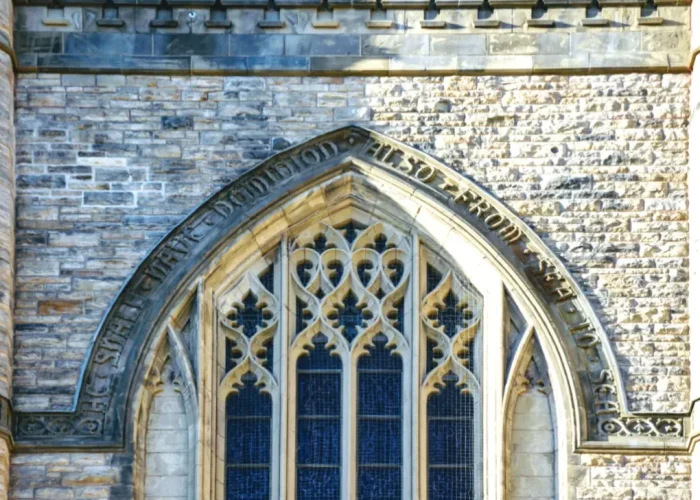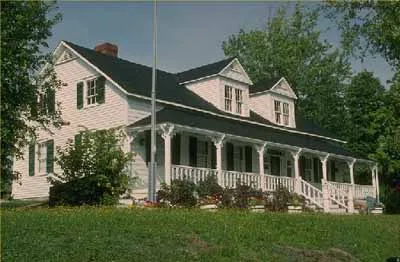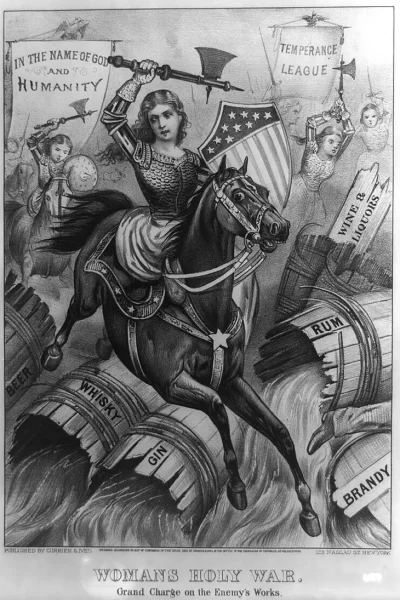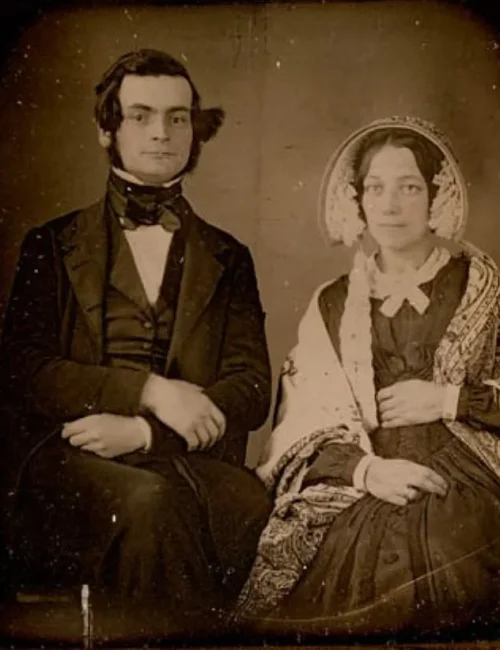Canadian History With New Eyes: The Dark Ages?
The Dark Ages & the French Wars of Religion Some time ago, I started to
Home / “He Shall Have Dominion”: The Tale of Sir Leonard Tilley–Part 1
Did you know that our nation’s full name is the Dominion of Canada?
In fact, our national celebration of Confederation, on July 1, was originally entitled ‘Dominion Day’.
The celebration of this day was changed to ‘Canada Day’ in 1983.
‘Dominion’ is certainly a unique title. Canada is the only self-governing country in the world to possess it. And a unique title often has a unique tale behind it. Such is the case with the Dominion of Canada.
Canadians are eternally indebted to the late Sir Leonard Tilley, a leading Father of Confederation. It is he who is credited with the suggestion of the word ‘dominion’ at the Charlottetown Conference in 1866. Tilley, a dedicated Christian and patriotic Canadian, drew his inspiration from the KJV translation of Psalm 72:8.
“He shall have dominion also from sea to sea, and from the river unto the ends of the earth.”
Apparently, for their morning devotions in the backyard of his cousin, Dr. Samuel Tilley Gove, they had read together Psalm 72 before heading to the Charlottetown Conference.
Later to his colleagues, Tilley suggested the title “Dominion” instead of the proposed “Kingdom”, which many feared would displease Canada’s southern neighbour, the United States. The name was adopted immediately.
Tilley also encouraged the attendees of the Charlottetown Conference to adopt as our motto the Latin A Mari Usque Ad Mare (From Sea to Sea).

Sir Samuel Leonard Tilley was born on May 18, 1818, in Gagetown, New Brunswick to Thomas Tilley and Susan Peters.
To make up for this exceedingly long and formal title, the young Tilley was soon dubbed ‘Lennie’. He was 5 years old when he was first sent to a Madras school in his hometown.

In the early 19th century, the Madras style of education was all the rage. Andrew Bell, who played a large role in the implementation of these schools in the English-speaking world, described it as follows:
“This system reflects on the simple principle of tuition [instruction] by the scholars themselves. It is its distinguishing characteristic that the school, how numerous soever, is taught solely by the pupils of the institution under a single master who if able and diligent, could, without difficulty, conduct ten contiguous schools each consisting of a thousand scholars. In addition to this general principle, and independent of it, the Madras School furnishes certain individual practices or helps in the art of tuition, by which the pupils are initiated into the elementary processes of reading, spelling, writing, arithmetic, morality, and religion.”
Tilley attended this institution for only 4 years. In 1827 he was sent to a newly-opened grammar school near home. His teacher there was a man named William Jenkins.
Jenkins was a firm, strict individual for whom Tilley had great respect. Jenkins later served as the vice president of the Chatham Temperance and Total Abstinence Societies. His views on alcohol likely greatly influenced his young student, who would go on to become a major leader in the Temperance Movement.
The Temperance Movement was an organized, widespread resistance to the distribution of alcohol in the mid-late 1800s. Led by preachers, politicians, and women, it sought legislation enforcing Prohibition – government bans on the sale and use of alcohol.

When Tilley was nine years old, he had an experience which probably influenced the direction his life would take.
One day, on the way home from school, Tilley and a friend (likely a cousin) happened upon the friend’s father, Speaker of the House of Assembly Col. Harry Peters. With him was Governor of New Brunswick Sir Howard Douglas.
James Hannay, a faithful contemporary biographer of Tilley’s, described the scene in this manner:
“…the boys were introduced to His Excellency, who presented each of them with a Spanish quarter-dollar. Sir Leonard could remember and often spoke of the appearance of Sir Howard Douglas, dressed in a blue coat with brass buttons, a fine-looking gentleman, with a pleasant face and a kindly smile. Little thought the then governor of New Brunswick that the boy to whom he was speaking, a lad of nine years of age, would fifty years later sit in his own chair in the government house.”
At age 13, Tilley was sent to St. John, New Brunswick, to begin his apprenticeship as a druggist under a doctor. Four years later, in 1835, he began to work for the future mayor of Saint John, William O. Smith. Tilley may have received inspiration for his own journey into politics from this older statesman.
Perhaps it was Smith who encouraged him to become a member of the St. John Young Men’s Debating Society, which Tilley joined in 1838. This was the young man’s first attempt at public speaking; and he didn’t do terribly at it either, apparently, as Hannay later put it, displaying “remarkable aptitude for debate and public discussions.”
When Tilley was 19, he co-founded ‘Peters and Tilley Cheap Drug Store!’ with his cousin, Thomas W. Peters. This was Tilley’s first major business venture, embarking into a field in which he would soon prove successful.
As a young man, Tilley was never particularly ‘religious’. It wasn’t until 1839 that he seriously considered his life and helpless spiritual state. After hearing Rev. William Harrison preach one Sunday, he finally realised he was a sinner who could do nothing on his own, but needed the blood of Jesus to purify his sin (1 John 1:7). Tilley later described his conversion as a ‘new departure.’
He eagerly began to serve the church; teaching Sunday school, volunteering as a churchwarden, and joining the committee of the Saint John Religious Tract Society.
Tilley was soon also volunteering with various organizations dedicated to improving society.
He joined the St. John Mechanics’ Institute as treasurer in 1842. The purpose of the Institute, small pockets of which were located all over the Western world, was to provide educational opportunities for adults, by gathering resources such as books and natural history collections.
The Saint John’s branch of the Institute opened a small museum which featured the collections of Abraham Gesner, the Canadian inventor of kerosene. This museum eventually became Canada’s oldest surviving museum, the New Brunswick Museum.
While at the Institute, Tilley would meet future colleagues in the political world, including William Johnston Ritchie.
In 1843 Tilley married his first wife, Julia Ann Hanford. He would name both their first son (William Harrison Tilley, born in 1845), and a son from a later marriage (W. Harrison Tilley, born in 1876), after Rev. Harrison. Evidently Tilley was deeply grateful to his spiritual mentor. And, interestingly enough, Tilley’s first son named for Harrison would later become a minister.

It was in 1844 that Tilley began his activism regarding temperance and prohibition. He certainly would have seen the results of the widespread distribution of alcohol. Even in New Brunswick it was ripping families apart.
It was a common occurrence for a hardworking, honest fellow, seeing no way to break the vicious cycle of poverty, to drink away his daily cheque in the evenings and then stagger home, nearly dead drunk, to his hungry, ragged wife and children.
Tilley was soon to witness the evils of alcohol for himself.
One day in 1844, he came upon a little girl screaming for help. He hurried with her to her home, and to his shock and horror, as he entered he saw the girl’s mother lying dead on the floor. Her drunken husband had murdered her with a knife in front of their children.
Tilley was personally shaken by the event. Later, he penned these sober words:
“There lay the mother weltering in her blood, her little children crying around her, and the husband and father under arrest for murder; and rum the cause of it all.”
This tragic experience made Tilley determined more than ever to do his part in the fight against ‘the devil’s drink’. That same year he joined the Portland Total Abstinence Society, a group that fought for government bans on alcohol. And in 1847 he became a member of the Sons of Temperance.
The Sons of Temperance was a group founded in the United States, dedicated to fighting against alcohol. A New Brunswick branch had just opened, and Tilley joined right away. He quickly took the reins.
Tilley used his skills in public speaking and negotiation, something he likely learned from business, to argue for temperance. He quickly became such a powerful leader in the movement that, in 1854, he was elected to the highest position in the Sons of Temperance, Most Worthy Patriarch.
In 1848 Tilley’s cousin retired, leaving the ‘Cheap Drug Store!’ entirely to Tilley. Later, in 1855, unable to keep up both a drug store and a political career, Tilley decided to sell the business.
In the meantime he helped found the Rail-Way League, where he yet again served as treasurer. In Tilley’s time the railway seemed to be the defining mark of progress, a ‘wave of the future’ to unite the colonies and enable cross-continental travel.
The League would soon morph into the New Brunswick Colonial Association, which encouraged the uniting of Canadian colonies into one nation largely uncontrolled by Britain’s heavy hand.
It was here that Tilley began to debate his beliefs and shape his ideas. He would carry them far, from St. John, to Charlottetown, to London, to Ottwa; and they would, in nearly 20 years, lead him to be a Father of Confederation.
The Dark Ages & the French Wars of Religion Some time ago, I started to
In many places, like legislatures and schools, the Bible is considered ‘hate literature’. Counseling someone
Dominion Day had been a federal holiday that celebrated the enactment of The British North American Act which united four of Britain’s colonies – Nova Scotia, New Brunswick, Upper and Lower Canada (which became Ontario and Quebec), into a single country within the British Empire, and named that country The Dominion of Canada.
Britain’s claim of Rupert’s Land by the Doctrine of Discovery, proved to be one of